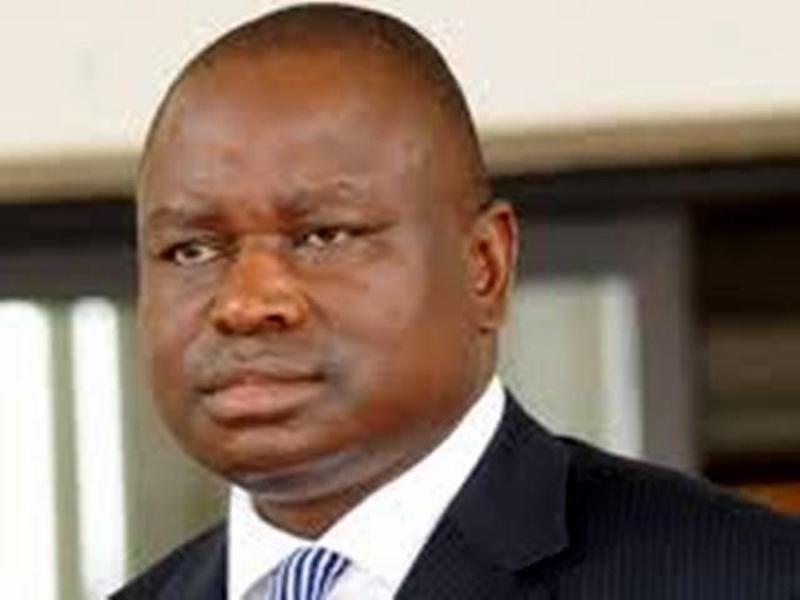The Oyo State Government on Sunday in Ibadan released the White Paper on the report of a Committee on Participatory Management of Schools and announced the creation of School’s Governing Board.
A statement signed by Toye Arulogun, the State Commissioner for Information, Culture and Tourism, said government released the White Paper after weeks of careful and indepth analysis of the report according to international best practices on government policies.
Arulogun added that the recommendations therein will serve as the much needed strategic framework to improve quality and performance in the state’s education sector.
He said that the newly created SGB would provide management functions for each secondary school in the state and meet performance targets.
The action is coming on the heels of the presentation of the report of the 31-member education committee, headed by Prof. Adeniyi Gbadegesin, the Vice-Chancellor og Ladoke Akintola University of Technology, Ogbomoso.
The committee, which was vested with the functions of examining the state of education in the state, review memoranda submitted to government and come up with quality recommendation.
The committee had on September 14 submitted its findings and recommendations to Governor Abiola Ajimobi, who commended them and assured them of the implementation of the report, which is aimed at reforming the state’s educational standard.
The commissioner had revealed that the state government adopted most of the recommendations of the Committee, but with variations either in nomenclature or scope.
Arulogun said the major highlight of the white paper included the introduction of a new model of schools management called School’s Governing Board.
He said: “The SGB model will be in two categories with membership drawn from accredited representative of Parent-Teacher Association, accredited representative of Old Students’ Association, accredited non-partisan Community leader.
“Also included is the Head Boy/Head Girl of the school, the School Principal to serve as Secretary, the Local Inspector of Education (LIE), representative of Local Government.
“Others are Council/LCDA and identified philanthropists.
“With the SGB, various units, organs and departments in the management of education will need to be re-aligned to avoid ambiguity, overlapping functions and inefficiency.”
Arulogun stressed that the SGB membership/leadership and scope shall be suitably determined by the Government and they shall not be entitled to any form of remuneration from Government.
He said that government would be responsible for payment of salaries of teaching and non-teaching staff, curriculum development and quality control.
He said that each SGB was mandated to meet once a month to properly discharge their functions.
According to the White Paper: “The functions of the SGB shall include improving the Quality of school programmes and efficiency of teachers.
“Thereby raising students’ achievement level, provision of adequate teaching and learning resources, full participation of stakeholders in management and effective management of schools among others.”
The commissioner stated that government has resolved to expedite action on the implementation of the Education Trust Fund recently signed into law in order to boost the state’s revenue base.
He said that such would support the development of the education sector, adding that government also agreed the committee should be open to support from other sources, both local and international.
Arulogun said that such support would allow for total or partial adoption of schools to support the development of education in the State and must be in line with the educational policy, which has details spelt out.
He said that the White Paper revealed the new categorisation of schools, highlighting lower and upper limits in terms of student’s enrolment, teachers posting and other resources.
He said: “Schools will be categorised as Urban Schools with a population of 1000 and above, Semi-Urban Schools with between 250 to 999 students’ population and Rural Schools with a population of 60 to 249.
“This will be in consideration of the Universal Basic Education Commission standard, probable infrastructure, current enrolment and availability of teachers.”
The commissioner stated that government has directed that all agencies in the sector must be restructured in a manner that would ensure effective communication.
It is also to be done in a way that interaction between them and the Ministry of Education, Science and Technology can be effective.
Arulogun said that government has emphasised the need for periodic verification exercise of personnel, students and infrastructure by the various agencies.
Arulogun said that government has directed that each agency should gather, store and provide dependable data.
He said: “The government said that the Ministry of Education, Science and Technology must be the repository and sole issuing authority of such.
“While agreeing on the continued payment of N1,000 levies by each parent per student and per term, the government directed that each school’s SGB retains the levy collected for infrastructural development.
“Government recommended the structuring of Science and Technical Education in the state in such a way that there will be linkage between the existing Technical Colleges, the Polytechnics and the Universities of Technology.
“It concurred that efforts should be put in place to introduce short-term in-service training for all Artisans to develop their 21st Century skills at well-equipped Technical and Vocational Colleges.”
Arulogun said that government has recommended that the SGB should make efforts at resuscitating school sports and games and improve Information and Communication Technology education in Oyo State.
Arulogun said such should meet up with the global revolution in lCT and enforcement of the registration of all Private Schools in accordance with the policy for establishing such schools.
News Oyo releases White Paper on Education, establishes SGB for schools



